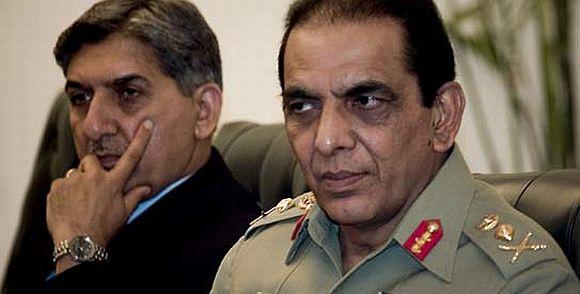
The ISI's overwhelming involvement in national politics has weakened the mainstream political parties, given a boost to horse-trading and arrested the growth of the political culture in the country. Amir Mir reports from Islamabad.
The controversial director general of Pakistan's premier spy agency Inter Services Intelligence -- Lt Gen Ahmed Shuja Pasha -- seems to be fighting a lost battle to secure yet another one year extension in his tenure. Pasha has already fallen out of favour not only with President Asif Ali Zardari and Prime Minister Yousaf Raza Gilani, but also with Chief of Army Staff General Ashfaq Pervez Kayani, especially in the aftermath of the infamous Memogate scam which has already backfired.
Pasha is set to retire as ISI chief on March 18, 2012, after being given two consecutive extensions by the Zardari-led government in March 2009 and March 2010, largely on the advice of General Ashfaq Kayani. Pasha was appointed DG ISI in September 2008, replacing Lt Gen Nadeem Taj, who had been appointed by General Musharraf. Nadeem Taj had been appointed ISI chief in place of the General Ashfaq Kayani who had served as spy chief under Musharraf from October 2004 to October 2007.
Kayani chose Pasha for a variety of reasons, but the most important among them was his being green-lit by the Americans. At the same time, Pasha had served, just like Kayani, as Director General of the Military Operations (DGMO), a stint from 2006 to 2008 where he had overseen the entire ambit of military engagements across the country.
...
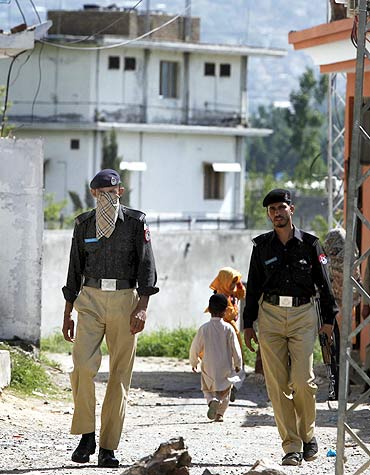
Pasha was also the moving spirit behind the Memogate scam that has deeply embarrassed the mighty military establishment besides causing serious tensions between Pakistan's political and military elite. The Memogate rip-off involved a shabby Pakistani American businessman Mansoor Ijaz who had claimed that the Pakistan government had sought the Obama administration's help to stave off a feared military coup following Osama bin Laden's May 2, 2011, killing in a covert US commando operation in Abbottabad.
Pasha came under heavy criticism when Osama bin Laden was found living in Pakistan, hardly a kilometer away from the Kakul Military Academy, which is located in a high-security garrison town on the edge of Islamabad. The international community had raised some serious questions about the presence of Osama bin Laden in Abbottabad, refuting Pasha's stance that his agency was not aware of his being there.
Despite the glaring failure of the ISI to track down the world's most wanted fugitive terrorist (who had been living in the garrison town of Abbottabad, next to the Kakul Military Academy, for the past five years), Lt Gen Shuja Pasha somehow managed to hold onto his position, eventually "unearthing" the Memogate scam a few months later. While investigating the memo without seeking any permission from the government, Pasha deemed it fit to travel to London, meet with Mansoor Ijaz on October 22, 2011, and persuade Army Chief General Ashfaq Kayani to take up the issue with the Zardari-led PPP government, maintaining that the memo has compromised Pakistan's national security.
In the whole process, Pasha simply bypassed the prime minister and his office and behaved as if he was not at all answerable to the civilian setup. The Memogate scam eventually forced Pakistan's ambassador to Washington Hussain Haqqani to quit, besides prompting the Supreme Court to appoint a high-level judicial commission to investigate the alleged role of President Asif Zardari in the Memogate. However, as the commission took up the case and asked Masnoor to come to Pakistan and prove his allegations, he first dilly-dallied and finally refused to appear before the commission, citing security reasons. Not only that, he accused the ISI director general (Ahmed Shuja Pasha) of touring some Arab countries after the May 2 Abbottabad raid to discuss a military coup against the government.
...
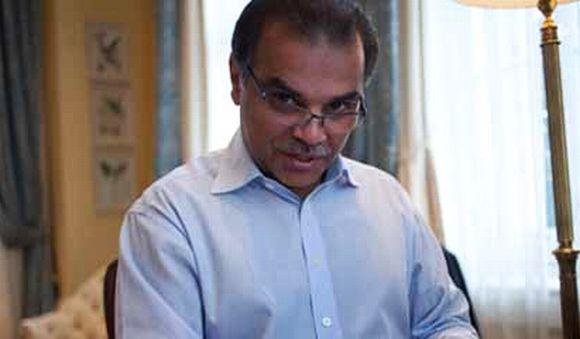
As if this allegation was not enough to tarnish Pasha's image, Mansoor Ijaz has further claimed that American pilots and Pakistani Air Traffic Control were in contact with each other before the May 2 Abbottabad raid, suggesting that Pakistani military authorities had prior knowledge of the operation in which Osama bin Laden was killed. He has also claimed that the threat of a military coup against the Zardari government in the aftermath of the May 2 raid was genuine and confirmed by the security agencies of four other countries. By making these disclosures, Mansoor Ijaz has turned the tables on Kayani and Pasha, therefore, putting them in a tight corner.
Under these circumstances, Pasha stands zero chance of getting any further extension, with the government circles accusing him of having masterminded the Memogate scam to pressurise the government into giving him another one-year term. The government circles in Islamabad remind that Prime Minister Yousaf Raza Gilani had already refuted media reports of ISI chief being given another extension in order to improve matters with the establishment. At the same time, the Nawaz Sharif-led opposition too has also asked the PPP government not to grant Pasha any further extension. Describing Pasha as the worst ISI chief Pakistan has had since 1988, leader of Pakistan Muslim League opposition in the national assembly, Nisar Ali Khan has stated at a press conference on March 29 that there are a lot of competent generals in the country who are capable of filling the slot of the ISI chief, "and I hope that the army itself will devise a strategy to replace Pasha."
The appointment of a new ISI chief has assumed greater significance in the backdrop of the civil-military tensions. While in theory, the country's premier intelligence agency falls under the jurisdiction of the prime minister being the chief executive of the country who can even appoint a civilian to head the agency, in practice, the ISI falls within the army's chain of command. But the government sources say although the prime minister has the constitutional authority to appoint the ISI chief, he would leave it to Army Chief General Kayani to name Pasha's successor. In fact, two past attempts by Prime Minister Benazir Bhutto and Prime Minister Nawaz Sharif to appoint lieutenant generals closer to their governments as spy masters had simply backfired.
...
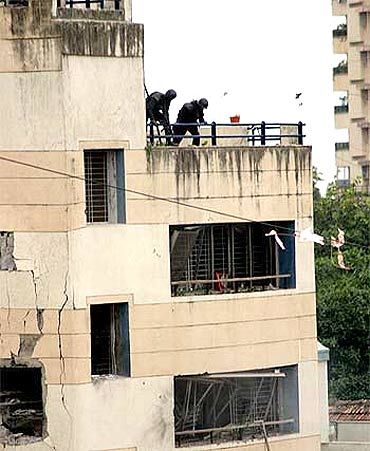
Benazir Bhutto had appointed Lt General (retd) Shamsur Rahman Kallu (May 1989 - August 1990) while Nawaz Sharif appointed Lt Gen Ziauddin Butt (October 1998 - October 1999) as ISI chiefs. However, both the moves only led to strained ties between the civilian government and the security establishment. While Shamsur Rahman Kallu died of a heart attack without completing his term, Ziauddin Butt was arrested by General Pervez Musharraf's administration when he toppled the Sharif government in October 1999.
In fact, Pasha's tenure as the ISI chief will be remembered for all the wrong reasons. It was hardly a few weeks after Shuja Pasha's appointment that a group of 11 terrorists belonging to Lashkar-e-Tayiba and allegedly trained by ISI, travelled by sea all the way from Karachi to Mumbai to carry out the 26/11 attacks, killing 172 people. Some other key terror attacks that were carried out during his tenure and which are described as the intelligence failures of the ISI, included the March 3, 2009, attack on the Sri Lankan cricket team in Lahore, the May 27, 2009, suicide attack on the provincial headquarters of the ISI in Lahore, the October 11, 2009, terrorist attack on the general headquarters of Pakistan Army, the December 4, 2009, terrorist attack at the parade lane mosque in the garrison town of Rawalpindi, the May 2, 2011, killing of Al Qaeda chief bin Laden in Abbottabad and the May 22, 2011, fidayeen attack targeting the Mehran Naval base in Karachi.
The ISI was also accused of aiding the infamous Haqqani militant network to carry out the September 13, 2011 attack on the American embassy in Kabul. During Ahmed Shuja Pasha's tenure, the ISI was also charged with involvement in large scale disappearances and subsequent extra-judicial killings of the missing persons. The Agency further came under sharp criticism for its alleged involvement in the May 29, 2011 kidnapping and subsequent murder of a senior journalist, Syed Saleem Shahzad. The slain journalist had made informed the Human Rights Watch (HRW) in an email that should he be killed, the ISI should be considered the principal suspect.
...
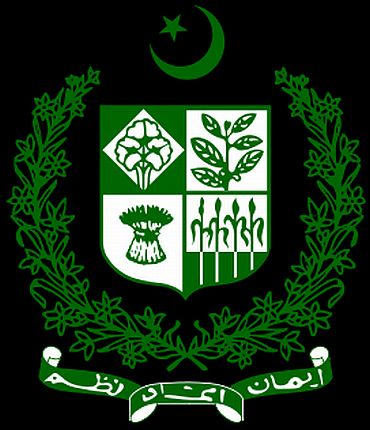
Another major charge against Ahmed Shuja Pasha was his overwhelming involvement in internal politics with a view to weaken the elected government. While making public US diplomatic cables, Wikileaks had quoted Pakistan's Interior Minister Rehman Malik (in December 2010) as telling then US ambassador to Islamabad Anne Patterson that it was not Army Chief General Ashfaq Kayani but ISI chief Lt Gen. Ahmed Shuja Pasha who was hatching conspiracies against President Asif Zardari.
The US embassy cables revealed that Rehman Malik had sought an urgent appointment with Anne Patterson in November 2009 and said that Pasha was hatching plots to dislodge President Zardari, adding that the president needed political security. However, Patterson was certain that the ISI chief could not do it alone.
As the country's military and political elite has decided to get rid of Pasha and bring in a new face to head the ISI, front runners among those tipped to take over include eight lieutenant generals and two major generals. Those who have already been short-listed include Corps Commander Karachi, Lt Gen Zaheerul Islam (due to retire on October 1, 2014), Corps Commander Lahore, Lt Gen Rashid Mahmood (due to retire on April 9, 2014), Corps Commander Peshawar, Lt General Khalid Rabbani (due to retire on October 1, 2014) Corps Commander Rawalpindi, Lt Gen Khalid Nawaz Khan (due to retire on October 4, 2013), Corps Commander Mangla, Lt Gen Tariq Khan (due to retire on October 1, 2014), Chief of General Staff Lt Gen Waheed Arshad (due to retire on April 9, 2014), Director General Joint Staff Lt Gen Muhammad Asif (due to retire on April 15, 2015), Adjutant General at GHQ Lt Gen Javed Iqbal (due to retire on April 15, 2015), Director General of the Military Intelligence (MI) Maj Gen Naushad Kayani and the deputy director general of ISI, Maj Gen Sahibzada Isfandiyar Ali Khan Pataudi.
Army Chief General Kayani is expected to short list three names before the March 18 retirement of Pasha, which would be sent to Prime Minister Yousaf Raza Gilani who will choose one of them in consultation with President Asif Ali Zardari. Well-informed khaki circles say Corps Commander Karachi, Lt Gen Zaheerul Islam has bright chances of being selected for the slot, keeping in view his experience in the ISI (as the head of the spy agency's internal wing that deals with counter-intelligence and domestic issues) before his promotion to the rank of a three-star general and his subsequent appointment as commander Karachi last year. Coming from a military family of Punjab province, Islam enjoys a rapport with General Kayani.
...
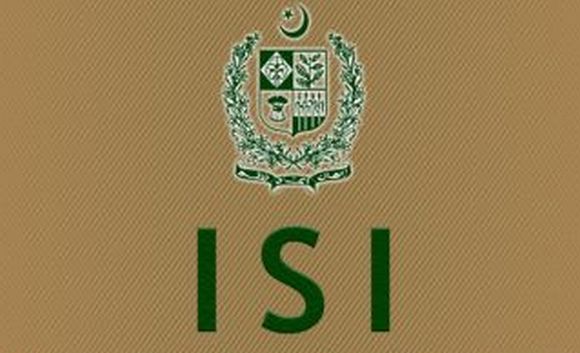
But it is believed that Adjutant General Lt Gen Javed Iqbal has an equal chance of being selected, mainly because of having served as director general military operations before becoming adjutant general. Lt Gen Pasha had served as DGMO before being elevated as the ISI director general. But there are those in the establishment circles who do not rule out the possibility of General Kayani elevating the incumbent director general of the Military Intelligence, Maj Gen Naushad Kayani as the next ISI director general by promoting him to the rank of lieutenant general to make him eligible for the top slot.
However, the deputy director general of ISI, Maj Gen Sahibzada Isfandiyar Ali Khan Pataudi could well become the dark horse due to his personal friendship with Kayani. Coming from the famous Pataudi family of the Indo-Pak sub-continent (which made its mark in the fields of showbiz and cricket, both in India and Pakistan); Isfandiyar is an accomplished polo player and chairman of the Pakistan Polo Association. Pataudi's close aides say his closeness with General Kayani, coupled with his liberal outlook and distinguished family background could to his advantage. An armoured corps officer, Isfandiyar, however, first needs to get a promotion to the rank of lieutenant general to become an eligible contender for the top slot.
ISI is Pakistan's premier spy agency, which is responsible for providing national security intelligence assessment to the government. However, the ISI's overwhelming involvement in national politics has weakened the mainstream political parties, given a boost to horse-trading and arrested the growth of the political culture in the country. This has led to demands by parliamentarians that the charter of the ISI be amended to exclude unrelated matters like domestic politics and also to allow it to concentrate on its actual job of combating external security threats.